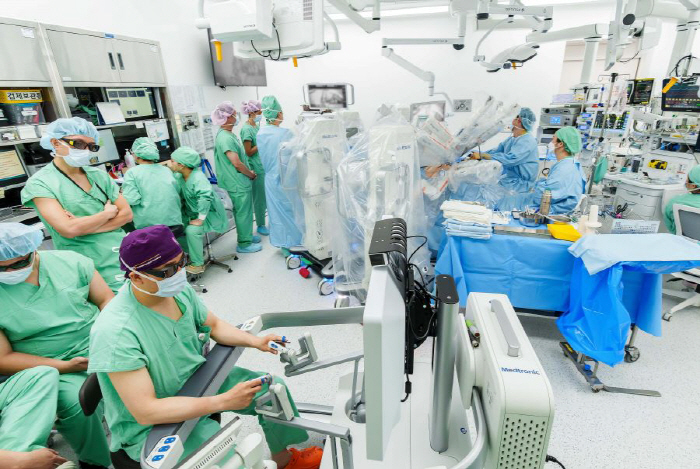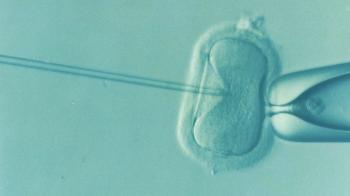Seoul National University Hospital Introduces Korea's First Hugo Robotic Surgery System...Successful Surgery for High-Level Prostate and Pancreatic Cancer
May 15, 2025
Seoul National University Hospital announced on the 8th that it has introduced the 'Hugo™ Robotically Assisted Surgery System (Hugo)' for the first time in Korea. On this day, successful surgery was performed on prostate cancer patients and pancreatic cancer patients, and in particular, high-level pancreatic duodenal resection using Hugo robot surgery was significant as a rare case worldwide.
Seoul National University Hospital has a variety of advanced robotic surgery systems, including Da Vinci Xi and Da Vinci SP and Hugo. This strengthened customized treatment capabilities for each disease and created a more efficient surgical and technical education environment. Based on this, Seoul National University Hospital plans to solidify its position as a global institution leading in robotic surgery and research and education.
Hugo, developed by global medical device company Medtronic, received European CE certification in 2021 and is currently undergoing U.S. FDA approval. In Korea, Professor Jang Jin-young's team at Seoul National University Hospital conducted clinical trials on 40 gallbladder and prostate resection patients for five months, and based on this, it received product approval from the Ministry of Food and Drug Safety in June 2024.
Hugo consists of 'Open Console' and 'Modular Armcart'.
Unlike the existing design, which requires the surgeon to operate with his face buried in the console, the open high-resolution 3D TV allows the surgeon and other medical staff to check the surgical scene together, which is free to communicate and advantageous for skill education. In addition, up to four robot arms can be separated and assembled, allowing access to the surgical site from various directions, and maximizing mobility and space to support efficient surgery.
On the 8th, Professor Chung Chang-wook of the Department of Urology at Seoul National University Hospital and Professor Jang Jin-young of the Hepatic Pancreatic Surgery performed prostatectomy and pancreatic duodenal resection for the first time in Korea using Hugo robots. The two patients are recovering healthily after surgery through robotic surgery with smaller wounds and less pain compared to open surgery.
As a result, Seoul National University Hospital successfully completed clinical trials to introduce a state-of-the-art robot system in Korea to the first surgery, proving once again its world-class technology capabilities. Furthermore, Seoul National University Hospital, which is preparing to open a surgical robot training center, plans to become a global hub leading education, research, and treatment of robotic surgery by providing simulator-based programs to domestic as well as overseas trainees.
Professor Jang Jin-young, who led the introduction of Hugo, said, `Pancreatic duodenal resection requires precise resection and anastomosis, which is the most difficult abdominal surgery.' `Pancreatic duodenal resection using Hugo robots is a very rare operation in the world, and we hope that it will gradually expand to various surgical fields to help more patients.'
Chung Chang-wook, Director of the Center for Robot Surgery, said "With the introduction of the rest system, we have created an optimized robotic surgery environment that can perform customized surgery for various diseases."The Robot Surgery Center of Seoul National University Hospital seeks various opportunities for clinical use of Hugo and will continue to strive to develop to the world-class level in research and education."," he said.
Seoul National University Hospital has a variety of advanced robotic surgery systems, including Da Vinci Xi and Da Vinci SP and Hugo. This strengthened customized treatment capabilities for each disease and created a more efficient surgical and technical education environment. Based on this, Seoul National University Hospital plans to solidify its position as a global institution leading in robotic surgery and research and education.
Hugo, developed by global medical device company Medtronic, received European CE certification in 2021 and is currently undergoing U.S. FDA approval. In Korea, Professor Jang Jin-young's team at Seoul National University Hospital conducted clinical trials on 40 gallbladder and prostate resection patients for five months, and based on this, it received product approval from the Ministry of Food and Drug Safety in June 2024.
Hugo consists of 'Open Console' and 'Modular Armcart'.
Unlike the existing design, which requires the surgeon to operate with his face buried in the console, the open high-resolution 3D TV allows the surgeon and other medical staff to check the surgical scene together, which is free to communicate and advantageous for skill education. In addition, up to four robot arms can be separated and assembled, allowing access to the surgical site from various directions, and maximizing mobility and space to support efficient surgery.
On the 8th, Professor Chung Chang-wook of the Department of Urology at Seoul National University Hospital and Professor Jang Jin-young of the Hepatic Pancreatic Surgery performed prostatectomy and pancreatic duodenal resection for the first time in Korea using Hugo robots. The two patients are recovering healthily after surgery through robotic surgery with smaller wounds and less pain compared to open surgery.
As a result, Seoul National University Hospital successfully completed clinical trials to introduce a state-of-the-art robot system in Korea to the first surgery, proving once again its world-class technology capabilities. Furthermore, Seoul National University Hospital, which is preparing to open a surgical robot training center, plans to become a global hub leading education, research, and treatment of robotic surgery by providing simulator-based programs to domestic as well as overseas trainees.
Professor Jang Jin-young, who led the introduction of Hugo, said, `Pancreatic duodenal resection requires precise resection and anastomosis, which is the most difficult abdominal surgery.' `Pancreatic duodenal resection using Hugo robots is a very rare operation in the world, and we hope that it will gradually expand to various surgical fields to help more patients.'
Chung Chang-wook, Director of the Center for Robot Surgery, said "With the introduction of the rest system, we have created an optimized robotic surgery environment that can perform customized surgery for various diseases."The Robot Surgery Center of Seoul National University Hospital seeks various opportunities for clinical use of Hugo and will continue to strive to develop to the world-class level in research and education."," he said.
|
This article was translated by Naver AI translator.














